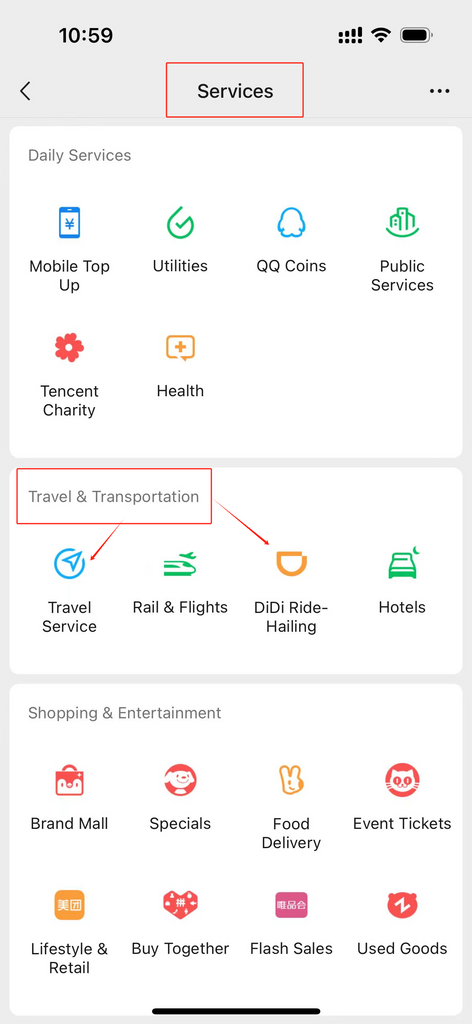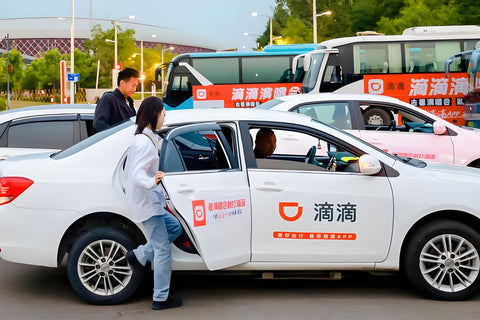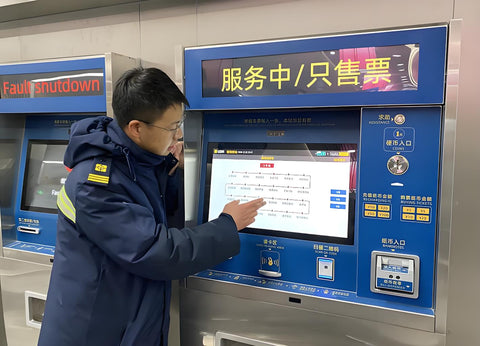Foreigners who come to China for travel or business may face a series of cultural differences related to China's local culture, which are particularly noticeable in the areas of visa application, eating and ordering, accommodation, transportation, and shopping. Here are some specific descriptions of these areas:
1. Visa
Before traveling or visiting friends and family in China, you should check whether you need to apply for a visa and what kind of visa. In many European countries, visa exemption applies, so they can just pack their bags and go. However, when coming to China, you need to check the immigration policies.
If you need more information about visa exemption or transit visa, please contact the immigration authorities at the place of intended entry in advance to confirm and verify. After receiving a positive reply, arrange your travel plan. Confirmation methods:
- You can call the area code + National Immigration Administration 12367 hotline to confirm (for example, dial 021-12367 when entering Shanghai), and select the voice menu of "Port Entry and Border Passage" for consultation and confirmation!
2. Eating and ordering
- When ordering:
1) Some restaurants have started using WeChat-scan-QR-code orderinginstead of using paper menus. The QR code is on the Ad sign or at the corner of the table. Remember not to scan it with Camera, of course, you can also ask the waiter if they have a paper menu, or find the picture on the review website and ask the waiter to place the order for you.
2) Some restaurants charge extra for rice, while others provide free rice by the bucket. Also, remember that chopsticks cannot be inserted straight into the rice.
3) Pay attention to the portion size of the dishes. Northern dishes are usually larger in portion size than Southern dishes, and you can ask the server for the portion size before ordering to avoid wasting food.
4) Cold dishes in Chinese cuisine are similar to appetizers in Western cuisine, but they are not necessarily served at every meal. They are decided based on the scale and occasion of the banquet. Additionally, Chinese cuisine does not strictly differentiate between main courses, salads, or pasta, but rather incorporates these elements into various dishes to create unique flavors and textures. Therefore, if you want to experience a rich food culture, try to accept and appreciate the diversity of the dish structure in Chinese cuisine when tasting it.
- Waiting for the meal:
1) In some foreign restaurants, salad is usually served first, followed by soup, appetizers, main courses, and finally desserts and drinks. In most Chinese restaurants, however, the main courses are served first, with soup served in the middle, and vegetables served at the end.
2) The restaurant will provide free tea&water, usually green tea, hot water, or room-temperature cold water. If you need iced water, you should ask the server if they have ice cubes.
- Paying the bill:
1) You don't have to give a separate tip. Large restaurants will charge you a service fee, and small restaurants don't have this habit.
2) Dim sum (Cantonese cuisine) usually charges tea fee per persona. If you don’t need tea but water, refuse it.
3) Some restaurants provide free tissues, while others provide a small pack of tissues, which are usually charged. If you haven't opened the pack, you can ask for a refund at the checkout by asking the server to process the refund.
3. Accommodation
1) Some hotels can only accommodate mainland Chinese tourists, so please pay attention to whether the hotel/guesthouse you are booking has the qualifications to accommodate foreign tourists.
2) The towel on the door handle of the bathroom, if it is not a long bath towel, is usually a mop towel, used to wipe the water off your feet outside the bathroom and prevent slipping.
4.Internet Restriction
【Chat】: YES: QQ, WeChat, Skype; NO: Messenger, WhatsApp
【Social】: YES: Douyin, Xiaohongshu, Weibo, WeChat; NO: Facebook, Instragram, YouTube, Tik Tok
【Search】: YES: Baidu, Bing, NO: Google
【Navigate】: YES: Gaode Map, Baidu Map, Apple Map, NO: Google Map
|
Chat |
Social |
Search |
Navigate |
|
|
YES |
QQ, WeChat, Skype |
Douyin, Xiaohongshu, Weibo, WeChat |
Baidu, Bing |
Gaode Map, Baidu Map, Apple Map |
|
NO |
Messenger, WhatsApp |
Facebook, Instragram, YouTube, Tik Tok |
|
Google Map |
5. Transportation
1) Traffic rules and habits:
Traffic rules in China differ from those in some Western countries, such as driving on the right side of the road in mainland China, and right turns can be made without a red light if there is no traffic light. Additionally, due to the large population and number of vehicles in China, vehicles making turns may encounter situations where some cars yield to pedestrians and others pass quickly.
2) Online ride-hailing services:
Foreign travelers can use Alipay or WeChat to book online ride-hailing services.
- Foreign travelers can open the Alipay APP, click on "Transport", select "Taxi", and enter both the pickup location and the destination to book a ride-hailing service.
- Foreign travelers can open the WeChat APP, click on "Me ", select "Services", scroll down and click on "Mobility" or "Ride Hailing", and enter both the pickup location and the destination to book a ride-hailing service.

- Download Didi-Greater China APP, which supports foreigners to use foreign mobile phone numbers and international credit cards to register, and book online ride-hailing services once registered. Open Didi-Greater China APP, confirm the pickup location and the destination, select the preferred services(Express, Taxi, Premier, Luxe), and book a ride-hailing service.

3) Metro:
A total of 55 cities in China have metro lines. Foreign travelers can apply for metro passes at the metro station or use the Alipay APP to take the metro.
- Foreign travelers can buy single-journey tickets at the ticket office or self-service machines at the metro station. Frequent travelers can apply for metro passes at the ticket office with your passports. You can make payments in cash or by WeChat or Alipay.
- Foreign travelers can open the Alipay APP on your mobile phones, click on "Transport", and select "City". After completing identity verification, you will obtain a QR code for the metro pass. You can enter and exit the metro station by having the QR code scanned.

4) Bus:
Foreign travelers can pay in cash or by bus cards or the Alipay APP to take the bus.
- 1. Foreign travelers need to open the Alipay APP, click on "Transport", and select "City". After completing identity verification, you will obtain a QR code for public travel. You need to have the QR code scanned when getting on and off the bus.
- 2. Foreign travelers can pay in cash (RMB) to take buses. Buses usually do not provide change, so travelers need to prepare small change in advance(usually 2 yuan/trip/person).
- 3. Foreign travelers can take your passports to the service outlets of the bus companies to buy bus cards. Payment for the cards can be made in cash or by WeChat or Alipay.
6. Shopping
1) Price and bargaining:
In some markets or stores in China, especially non-brand stores or small businesses, you can slightly bargain when shopping.
2) Payment methods and convenience:
With the development of technology, payment methods in China are becoming increasingly convenient, and mobile payment (such as Alipay and WeChat Pay) has become the mainstream. However, if you may not be accustomed to this payment method, so it is advisable to carry some cash or familiarize yourself with the local payment methods.

![[Where To Eat:] Discover Shanghai's Best Central Asian Cuisine](http://hillsshanghai.com/cdn/shop/articles/pulao-lamb-chop-7262662_1920.jpg?v=1725372338&width=533)
